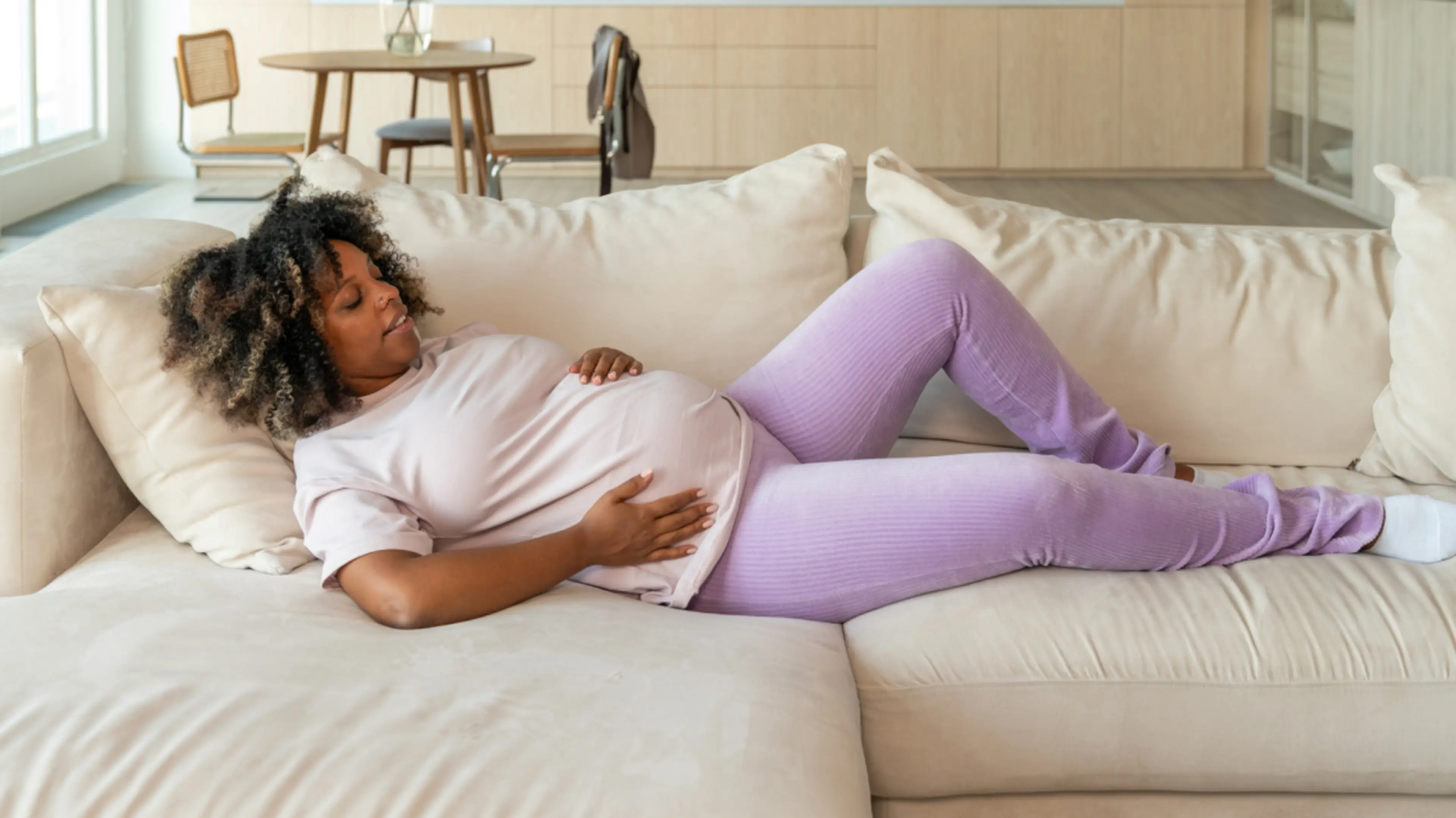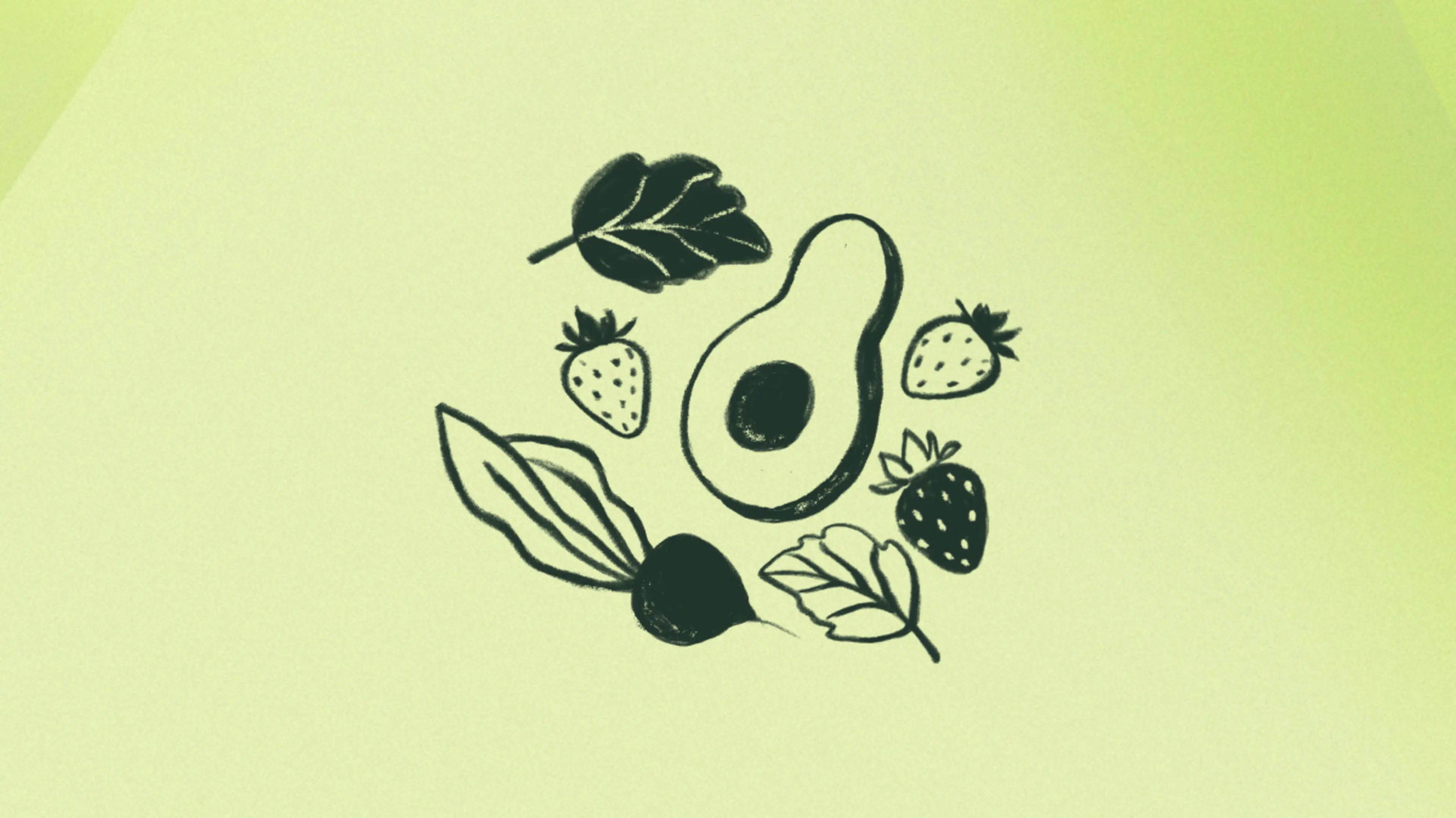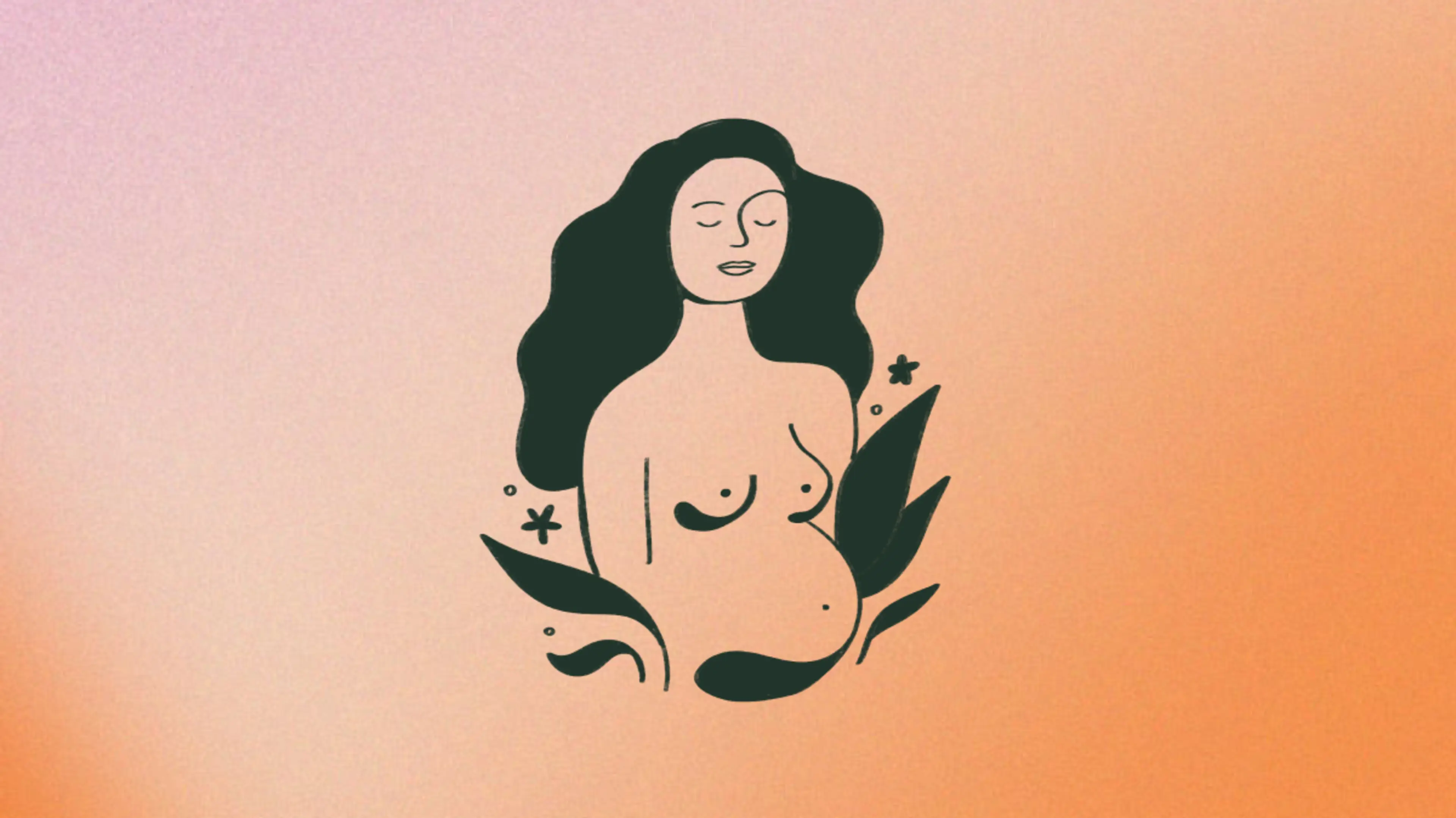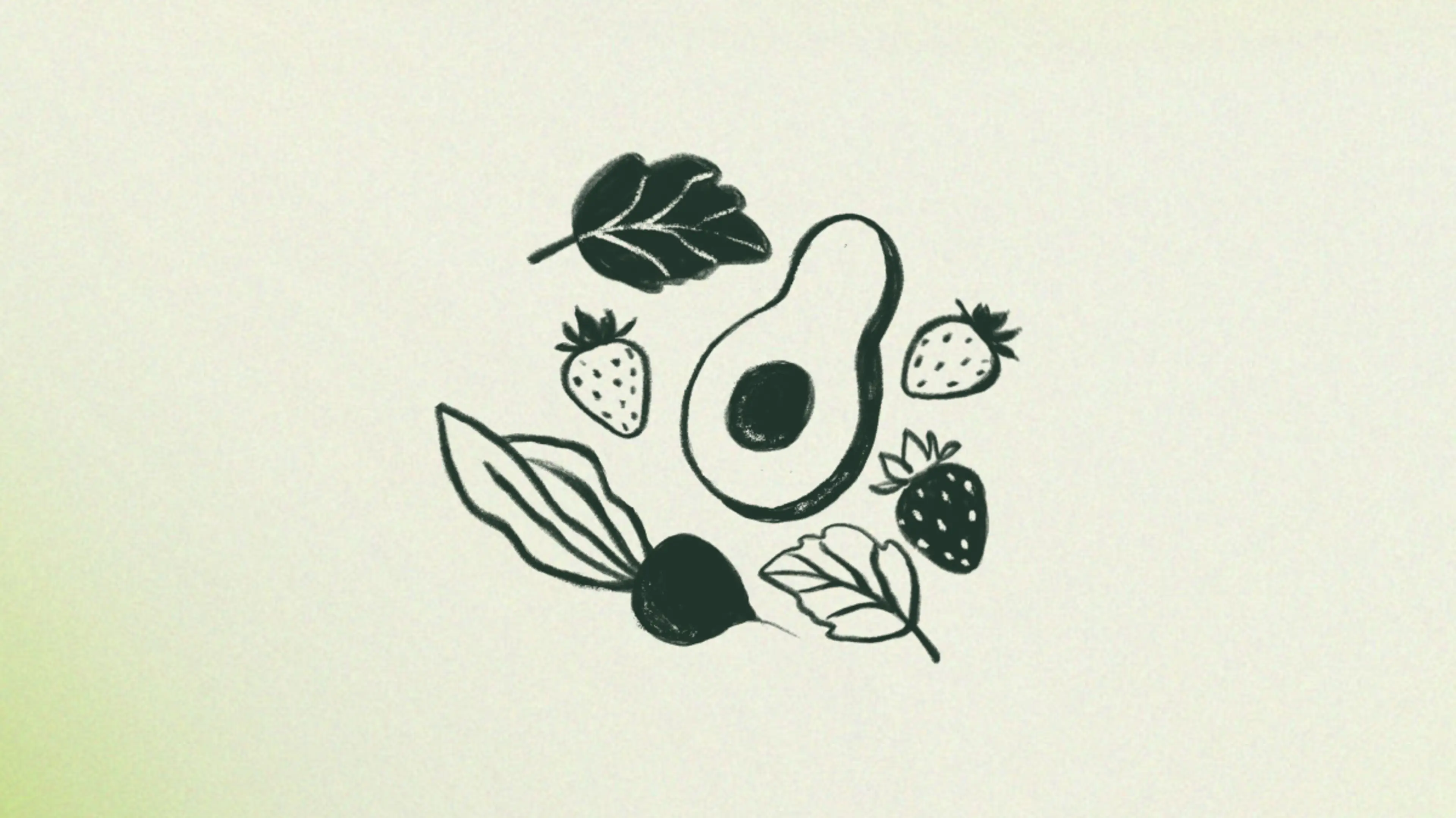When you’re growing a human, it’s normal to feel some growing pains along the way. The changes a woman’s body goes through during pregnancy are incredible and uncomfortable all at the same time.
While the experience can differ wildly from person to person, most would agree that a painful pelvis is one pregnancy-related symptom that just can’t be avoided. I spent plenty of nights tossing and turning during my own pregnancy, trying to find a position that allowed my angry hips to simmer down long enough to get some sleep between the constant wake-ups to pee. I knew that my little (big) lady was the main source of extra weight on my joints, but didn’t realize there was much more to it than that. I also remember thinking my experience was off the charts in terms of my pain level. “This can’t be normal,” my anxious, tired brain insisted.
If this sounds like you, you’re not alone—and we’ve got tips to help.
The Cause of Pregnancy Hip Pain Is Not What You Think
Given that hips are all about bones and joints, it may surprise you to find that it’s actually a specific hormone that is the source of your hip discomfort. Its name may seem like a cruel joke because its effects can make you feel the opposite of how it sounds (or it may just remind you of The Fresh Prince of Bel-Air theme song).
“When you are pregnant, the body releases relaxin,” explains Christina Espinoza, CNM, ARNP. “This hormone loosens the ligaments, especially in the pelvis, to help your body prepare for birth.”
Because your hips bear all the weight of your torso as well as your belly, the loss of structure and strength in these ligaments takes away from the normally stable structure of your body. This shifting weight can cause particular problems at your pubic symphysis (the front joint of your pelvis), which is only held together by ligaments. So while your hip pain may temporarily be preventing you from chillin’ out maxin’, relaxin’ all cool, what’s really happening is that your body is getting you ready to meet your baby.
“Production of relaxin increases in the third trimester, prior to delivery, which also makes the third trimester the most significant time for hip pain,” says Espinoza. But as your due date gets closer, your baby will change its position in your uterus, which often reduces some of these pains. For most women, the pain improves1 during the postpartum period and levels off by around the six-month mark.
Getting to Know Your Pregnancy Aches and Pains
One of the not-so-fun aspects of pregnancy is the bouquet of aches and pains you may experience. The first step to figuring out how to treat them is to identify which one you’re dealing with. When it comes to the general hip and belly area, there are three types of pregnancy aches that can feel similar to hip pain but aren’t quite the same.
Round ligament pain
Round ligament pain comes from the pulling of the growing uterus on the round ligaments, also known as fibro-muscular connective tissue2 . There are two round ligaments, one on each side of the uterus, and each about 10 to 12 centimeters long. Round ligament pain can flare up with sudden movements—like a cough, laugh, or sneeze—and feels like a sharp, stabbing sensation that can sometimes worsen until the movement stops. While it’s in the same neighborhood as hip pain, what sets it apart is that the pain comes in short bursts and can travel upward or downward3 from the hips to the groin.
Back pain
Similar to hip pain, back pain is often another result of the loss of structure in your pelvis. “It’s like a weak foundation to a tall building,” Espinoza says.
According to the American Pregnancy Association, pregnancy back pain affects roughly 50% to 70% of pregnant women and can happen at any time during pregnancy. While the lower back is the most common area people experience this pain, the upper back and shoulders can also feel some pulling and pinching.
Sciatica
A close relative to back pain is sciatica. The American Pregnancy Association4 further explains that the two sciatic nerves in your body run from the lower back to the feet. When an enlarged uterus puts pressure on the nerves, you can experience pain, numbness, or a tingling sensation in the buttocks, hips, and thighs. Some women may not encounter sciatica at all, while others—like Hilary Duff and Heather Rae El Moussa—may feel it on debilitating levels.
How Can You Treat Hip Pain?
Whether your hip pain is bringing on mild discomfort or demanding bed rest, there are some things you can do to help ease the aches whenever they may flare up during your pregnancy.
Exercise. Everything from a walk around the block to more vigorous exercise can help. There’s really no right or wrong way to do it; just listen to your body and go easy on yourself if some days feel harder to get up and go than others. As long as your activity of choice includes some kind of movement, it will only help you and your baby. “I always recommend staying active starting from the first trimester on to help keep your body conditioned,” says Espinoza. “Daily walking is a great, easy way to do this.”
Use comfort items. Pillows made for pregnancy can be especially helpful for taking pressure off your hips (this one miraculously cured my radiating hip pain the very first time I tried it. I slept with it every night until I was a year postpartum—no joke). Regular pillows can also be folded or propped up to support your back, belly, and knees. Another useful item to consider is a maternity belt. Espinoza recommends an SI-joint belt, specifically, which is worn low on the hips to provide support at all stages of pregnancy and to help prevent injury. “Also, while a warm bath sounds relaxing, I tend to recommend ice over heat for normal aches and pains,” she adds. “Ice helps treat the inflammation that can build up over the course of the day.”
Make adjustments for more restful sleep. Some doctors recommend sleeping on your side while pregnant to improve circulation and maximize blood flow to the placenta. In my experience, doing so—and alternating sides—also tremendously helped with my hip pain. Combine that with going to bed early, napping as much as your schedule allows, and trying out different pregnancy pillows to help take the edge off, and you’re bound to catch a few extra Zs.
Connect with other moms. Chat with friends and family who have been there to learn what worked for their pain. You can also turn to social media for inspiration. One influencer I found helpful is @the.vagina.whisperer, who shares lots of information about the benefits of pelvic floor strengthening as your hips move in preparation for birth. Just be sure to consult your ob-gyn or midwife to determine reliable sources and the best course of action to alleviate your pain.
Hip pain during pregnancy is unfortunately unavoidable, but hang in there. As soon as your little one arrives, it will be a thing of the past and your hips will adjust back to their normal position. Until then, do what you can to make yourself comfy, and remember: the pain you’re feeling is a natural sign that your body is doing exactly what it should be.











